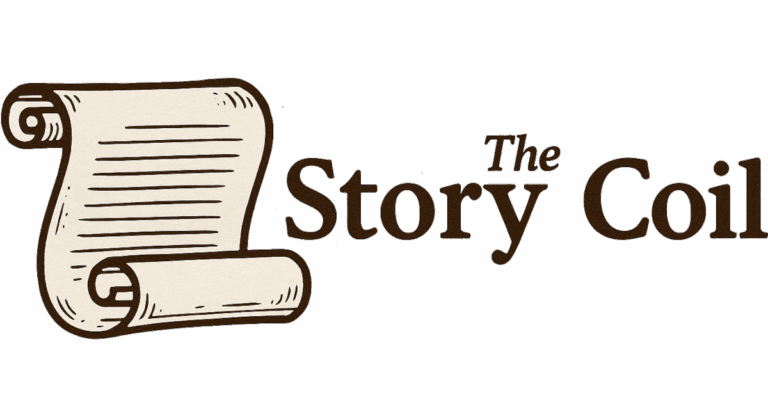The high school food court isn’t just a place to eat; it’s a microcosm of the teenage social hierarchy. It’s where cliques are formed and judgments are made. For many teens, a first job in fast food is a rite of passage, a lesson in hard work and responsibility. But for one reader, it was a constant source of mockery from a wealthy, entitled classmate. That is, until he decided to serve the bully a cold, hard, financial lesson that wasn’t on the menu.
I’ve been working at Burger Barn about 20 hours a week for the last year. I’m saving up to buy a car so I can commute to community college next year. I’m proud of my job. But to Chad, the resident rich kid whose dad buys him a new car every birthday, my uniform was a punchline. He loved to make fun of me for “smelling like fries.” Last week, in front of everyone, I finally showed him what hard work actually smells like: victory.
The ‘Burger Boy’ Jibes
Chad’s whole personality is “my dad’s money.” He’s never worked a day in his life and sees anyone who does as some kind of peasant. His favorite target was me. He’d walk past me in the hall and loudly ask a friend if they “wanted to supersize their order.” If he saw me talking to a girl, he’d ask if I was taking her to the Burger Barn for a romantic dinner. It was relentless, classist garbage, and I was sick of it.
I usually just ignored him. I knew I was working for a goal, while he was just coasting. But there’s only so much a person can take.
The Price of a Punchline
The showdown happened in the school parking lot. Chad was showing off the brand-new convertible his parents had just given him for his 18th birthday. A group of our mutual friends was gathered around, all pretending to be impressed. I was just trying to get to my mom’s 15-year-old minivan to go to my shift.
Chad saw me and grinned. “Hey, Burger Boy!” he called out, making sure everyone was listening. “If you work really, really hard for a whole year, you might be able to afford one of my hubcaps!” Everyone laughed nervously. He wasn’t done. “Seriously, dude, what do you even make slinging grease? Fifty bucks a week?”
That was it. I stopped, turned around, and calmly said, “You really want to know?” I had just cashed my bi-weekly paycheck, and the pay stub was still in my wallet. I pulled it out.
A Lesson in Compound Interest (and Humiliation)
Chad looked surprised that I was calling his bluff. “Yeah, man. Enlighten us,” he said, smirking.
I unfolded the pay stub. I didn’t just show him the number. I decided to give a full financial literacy seminar. “Well, Chad,” I said, my voice loud and clear. “I got promoted to shift lead last month, so I work about 25 hours a week now. At my new wage, my take-home pay for the last two weeks was $742.50.”
A few of my friends’ eyes widened. Chad’s smirk faltered a little. But I wasn’t finished.
“But that’s not the important part,” I continued, pointing to a different line on the stub. “See this number? That’s my contribution to my 401(k). My manager showed me how to set it up. And see this number next to it? That’s the company match. So every paycheck, I’m not just earning money; my job is literally giving me free money to invest in my own retirement.”
I folded the pay stub and put it away. “On top of that, the money I’ve been saving now totals just over $5,000. I’m buying a 2018 Honda Civic next Tuesday, in cash. So, to answer your question, I make enough to buy my own car, not just a piece of my daddy’s. How much money did you earn this week?”
The silence was beautiful. Chad just stood there, his mouth hanging open, his face bright red. He had no idea what a 401(k) or a company match was. He was a boy with a rich dad’s toy. I was a guy with a job, a plan, and a retirement account. In that moment, everyone in that parking lot knew who the real “loser” was. He hasn’t said a single word to me since.
The power dynamic in our friend group has completely shifted. But when I told my mom the story, she said I was rude to flaunt my financial information and that I should have just been the bigger person. I think I used facts and financial literacy to shut down a classist bully for good. AITA for putting him on blast with my pay stub?
This is a story about the profound difference between wealth and worth. The bully, Chad, used his inherited wealth as a weapon to make the narrator feel small. But the narrator’s comeback was a masterstroke. He didn’t just flash a number; he demonstrated responsibility, foresight, and a level of maturity that the bully couldn’t even comprehend. He didn’t just win the argument; he revealed that his “loser” job had already made him richer in ways that matter more than a fancy car.
What do you think, readers? Was this a brilliant and well-deserved takedown of a classist bully, or was it a tacky move to discuss finances so publicly? Sound off in the comments!



















0 COMMENTS